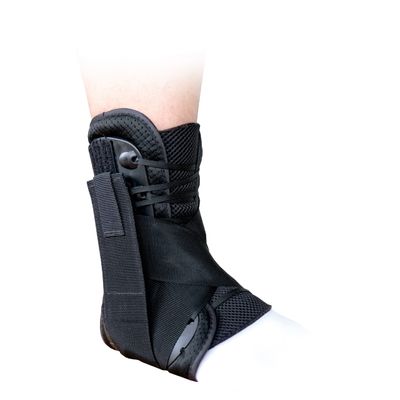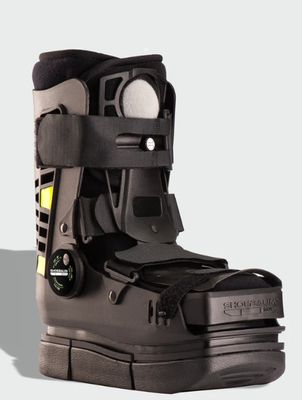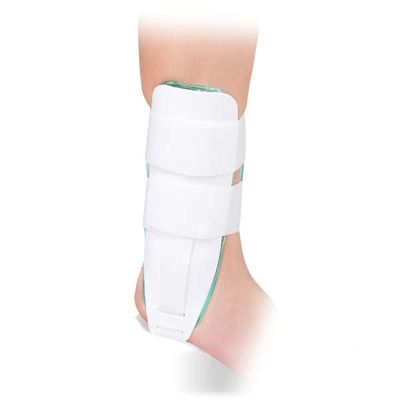Ankle Helper Hinge Brace
The Ankle Helper Hinge Brace is a specialized orthopedic brace designed to provide support, stabilization, and controlled movement for individuals recovering from ankle injuries or surgeries. It is often used in cases of ligament sprains, tendon injuries, post-surgical recovery, or chronic ankle instability. Here's a breakdown of its key features and benefits:
SUGGESTED HCPC: L1906
ORDER NUMBER: 19-0020L, 19-0030L, 19-0040L, 19-0050L
19-0021R, 19-0031R, 19-0041R, 19-0051R
SIZE: X-Small thru Large (see sizing chart to the left)
PRODUCT HIGHLIGHTS:
• Modified orthotic footplate provides critical foot and arch support, resisting inversion and eversion
• Neutral arch position promotes healing of injured ligaments
• Three strap adjustment system provides custom fit
Categories: Ankle & Foot
INDICATIONS:
Ankle injury rehabilitation, Sub-acute ankle sprains, chronic ankle instabilities or prophylactic use.
SUGGESTED HCPC: L1906



Order Online Your Orthopedic Brace or Splint
Braces, while also used for stabilization, serve a slightly different function. They are more flexible than splints and are designed to provide support through compression rather than full immobilization. Braces are often used for ongoing support during recovery or for chronic conditions like arthritis. Constructed from materials such as neoprene, elastic, or cotton, braces may also incorporate metal components for added reinforcement, but their primary function is to allow controlled movement while preventing overextension or strain.
A splint is a medical device used to stabilize and protect an injured joint, bone, or soft tissue, helping to promote healing by restricting movement and preventing further damage. Splints can vary in rigidity based on the nature of the injury. Rigid splints are often made from materials like plastic, metal, or fiberglass, providing firm immobilization for more severe injuries such as fractures. Soft splints, on the other hand, are typically made from materials like foam or fabric and are used in cases requiring more flexibility, such as sprains or strains, where complete immobilization is unnecessary.










